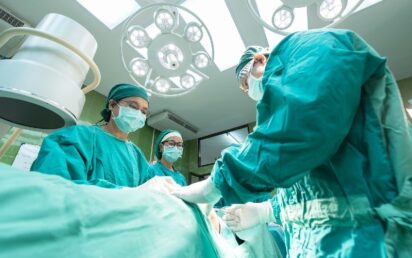Implantable heart technology is being used in Manchester to assess when a patient is at high risk of dying, thanks to University of Manchester and Manchester University NHS Foundation Trust-led research.
The implantable pacemakers and defibrillators contain multiple sensors that allow continuous monitoring of a patient’s heart health, 24 hours a day.
The study published in Europace and funded by the Medical Research Council is a collaboration between The University of Manchester, Manchester University NHS Foundation Trust (MFT), Health Innovation Manchester and Metronic – which manufactures implantable devices.
The research team examined remotely monitored health related data from 439 patients being cared for at Manchester Royal Infirmary (MRI), part of MFT, over two years.
The study reported a three-fold increase in the odds of mortality for patients who spent at least one day in ‘high-risk’ status. The risk status is determined by a combination of up to nine factors.
There was also a 26 per cent increase in the odds of mortality for patients who had 14 consecutive days or more in a high-risk status – compared with those whose high-risk episodes were shorter.
https://businesscloud.co.uk/blog/2021/10/06/jess-ennis-hills-femtech-startup-raises-1m/
The researchers are currently investigating if integration of the remotely-monitored device data into healthcare pathways can reduce hospitalisations and mortality.
Dr Fozia Ahmed, honorary reader in Cardiovascular Sciences from the University of Manchester and Consultant Cardiologist at The Manchester Heart Centre, part of the MRI, said: “Remote monitoring capabilities of modern-day cardiac devices enables continuous monitoring of health-related data in the patients’ own homes.
“The data can help identify when there is a potentially significant shift in a patient’s clinical condition, helping to predict future adverse clinical events, such as hospitalisation and death.
“Historically, cardiologists have seen patients at six to 12-month hospital-based appointments. If a patient with heart failure is unwell between appointments, then we rely on the patient getting in touch. But patients don’t always know they are unwell until it is too late.”
“We believe this technology could be a game-changer in the management of cardiac patients, particularly those with heart failure.
“In Greater Manchester, based on the data from the research, we have started to use the device-derived alerts, which notify the care team when a patient is detected by the device as ‘high-risk’, prompting a telephone consultation with a specialist.
“The whole process from detection of a high-risk episode, through to assessment and follow-up is known as the TriageHF Plus care pathway – originally developed in Manchester, it is now being used more widely.”
https://businesscloud.co.uk/blog/2021/09/30/healthtech-cera-to-create-5000-new-jobs/
A spokesperson from Medtronic, the industry collaborators which manufactures the device, said: “The increased mortality identified in the evaluation justified the need for an industry and NHS collaboration in this space, to create a digital solution to that aims to ensure that the high risk notifications are sent direct to heart care teams who can take action as clinically indicated, based on the health-related data from the patient’s device and patient reported symptoms.”
The researchers, with support from the NIHR Applied Research Collaboration Greater Manchester, are undertaking a follow-on study to evaluate the costs and resources of implementing the new heart failure care pathway.


